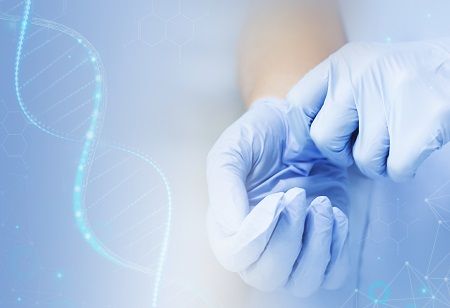India Pharma Outlook Team | Friday, 11 April 2025

Researchers believe that they have unearthed a fresh genetic cause of neurodevelopmental disorders that have never before been discovered. An international team has put together evidence that drives new hope for those families wanting answers.
Collaborators from the Icahn School of Medicine at Mount Sinai published in Nature Genetics a study on mutation in a tiny non-coding gene, RNU2-2, as the cause of a severe neurodevelopmental disorder characterized by epilepsy.
RNU2-2 is a small nuclear RNA gene, which is involved in splicing of RNA; one of the essential steps which process the genetic instructions. Typically, non-protein coding genes, RNU2-2 instead helps in the expression regulation of the gene. The study indicates that the mutations in this gene disturb the normal RNA processing, therefore leading to abnormal brain development.
Daniel Greene, First Author and Assistant Professor Of Genetics and Genomic Sciences at Mount Sinai said, "Our identification of RNU2-2 mutations as a cause of NDDs is particularly notable because it cements the biological significance of a class of small noncoding genes in NDDs".
"These insights highlight how small RNAs, long thought to be insignificant, can have a profound impact on brain development and disease", he added.
It builds on the existing literature of working with RNU4-2 mutations in ReNU syndrome, which is a related condition. RNU2-2 NDD, however, has a far more severe epilepsy profile. What makes it even more interesting is that the mutations are de novo, so they do not have a family history of them-clarity for the families without such genetic cause history.
It has one more finding of the study, which is an independent somatic mutation in RNU2 -2, which appears through the life span of aging individuals, hinting at possible associations with age-dependent neurological changes. Overall, the findings highlight the power of whole-genome sequencing in complementing efforts to unravel the complex brain disorders hidden in non-coding RNA genes.
Ernest Turro, Senior Author and Associate Professor at Mount Sinai stated, "We estimate that the prevalence of RNU2-2 disorder is approximately 20% that of RNU4-2/ReNU syndrome, one of the most common monogenic types of NDD. This means there must be thousands of affected families worldwide".
Sarah Wynn, CEO of Unique said, "A diagnosis like this can be life-changing and the first step on the journey to putting in place the right support and care".